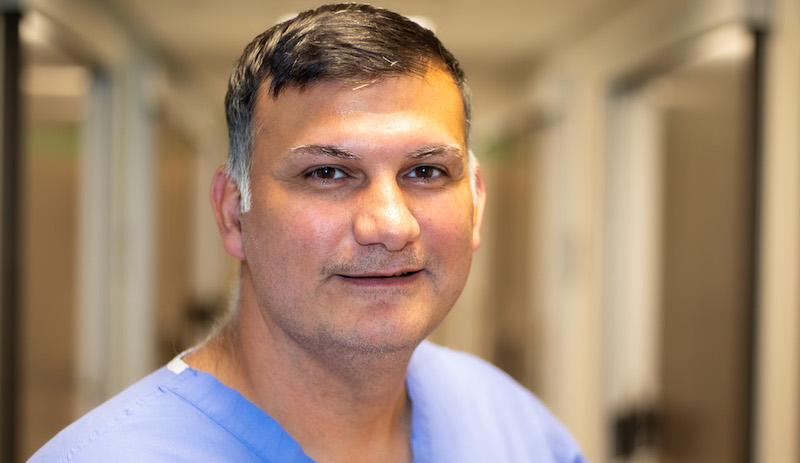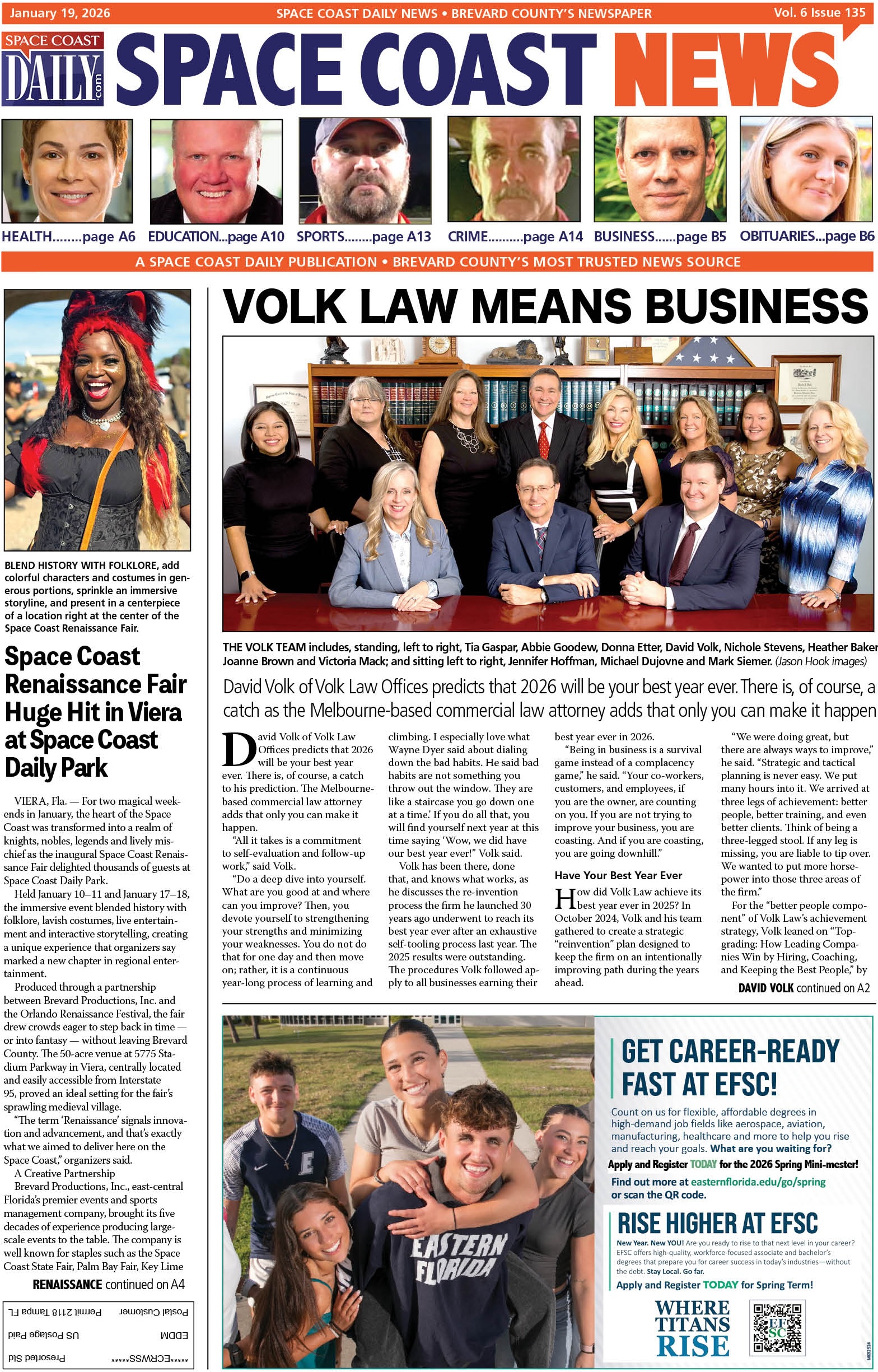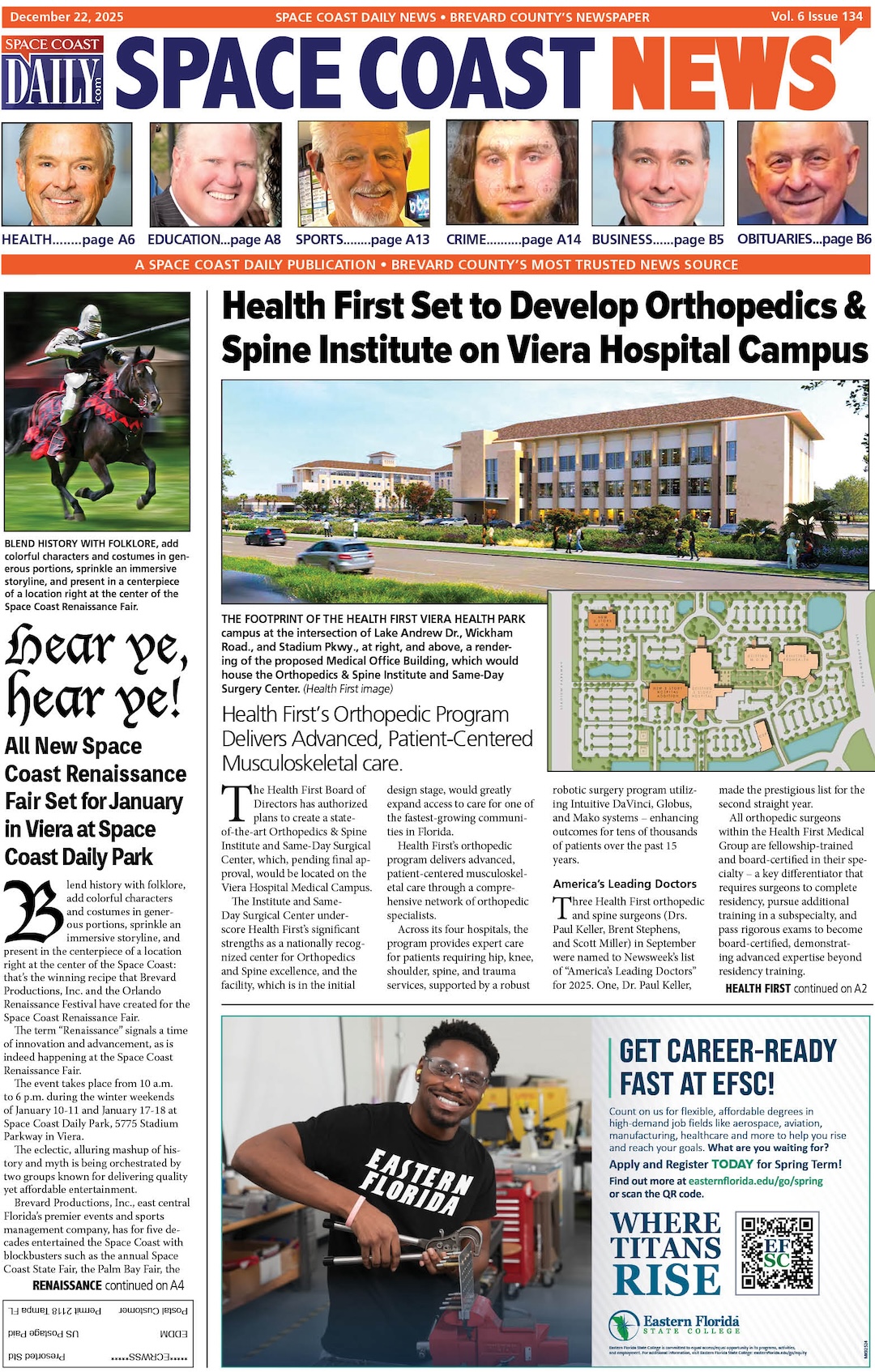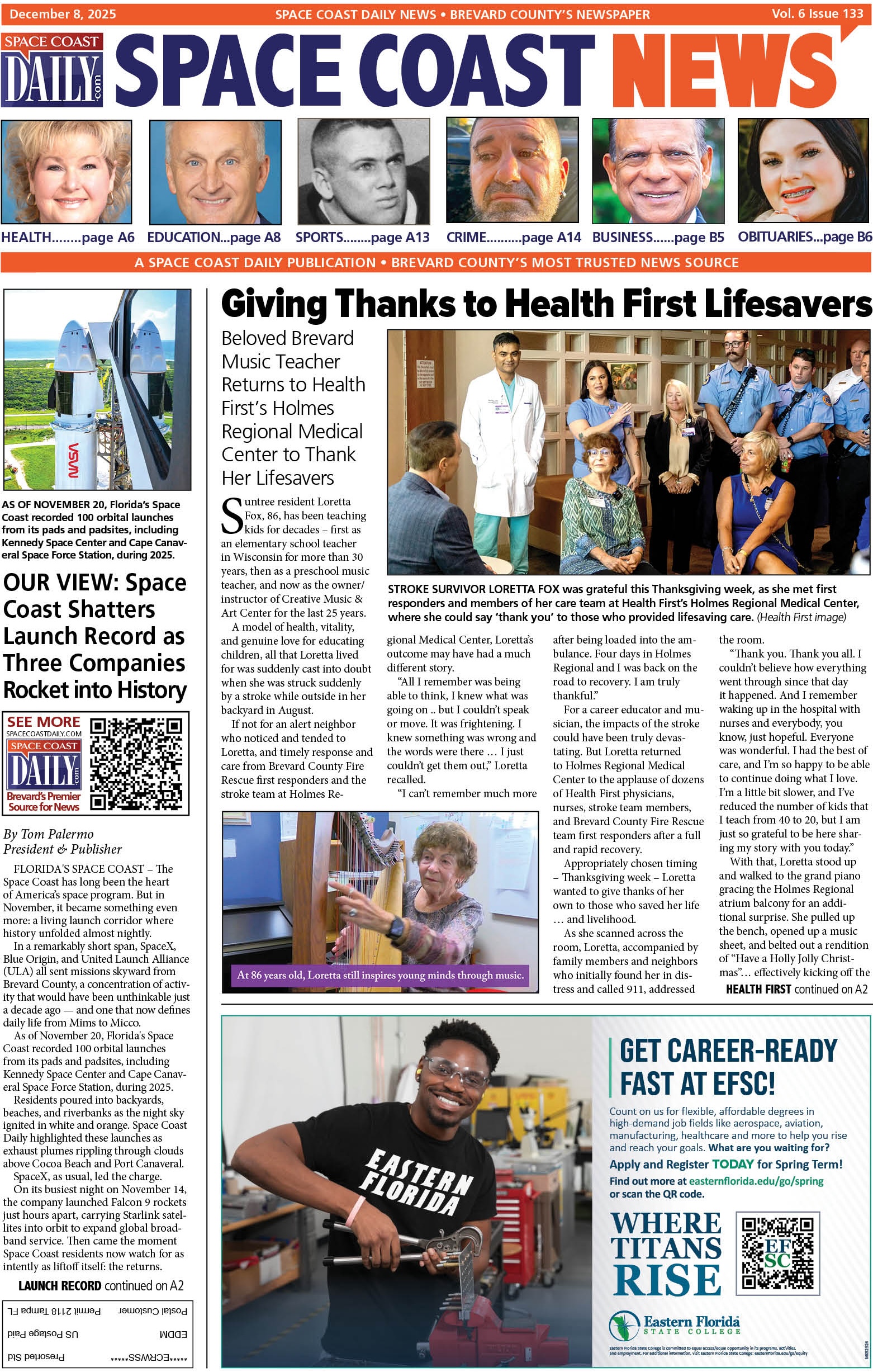Heath First Surgeon Dr. Mohamad Hammoud: Good Communication Important Before Procedure
By Space Coast Daily // September 30, 2023
successful surgical procedure starts and ends with communication

Dr. Mohamad Hammoud says patients who ask questions and do their research before surgery have less anxiety and higher satisfaction.
BREVARD COUNTY, FLORIDA – Do you have an upcoming surgery scheduled? Maybe it’s your first – or tenth. Perhaps it’s a quick outpatient, or a more serious procedure that will require a longer hospitalization and recovery. But either way, you’re likely to have at least a few jitters.
Health First surgeon Dr. Mohamad Hammoud has a message for you. “Let’s talk.”
According to the American College of Surgeons, more than 15 million Americans undergo some form of surgical procedure each year. For those preparing for surgery, ACS notes it’s important to understand options, potential risks, and how to better prepare in order to have the best outcome.

Dr. Hammoud says patients have a very important role in the procedure, and it’s equally important for patients and their loved ones to have open communication with physicians and the care team, starting with some simple questions.
■ Do I really need this surgery?
■ What are some other options or alternatives?
■ What is the recovery process like and how soon can I get back to normal activities?
■ Is the surgeon qualified and has he or she had an ample track record of success?
■ Can I get a second (or third) opinion?
■ Will there be aftereffects like scarring, a long rehabilitation process or mobility issues, etc.?
According to Dr. Hammoud, a successful surgical procedure starts and ends with communication, including educating the patient about the surgery. A strong surgical team provides for an environment where a patient and his or her family member is comfortable asking any important questions.
“When you have surgery, you trust a person (the surgeon) to tell you what they’re going to do. It’s your body, and most people want to know exactly what they’re doing. For instance, when I get somebody who has, let’s say gallbladder disease, most people really don’t know what the gallbladder does. So, what happens when you remove it?
We discuss if the surgery is worth the risk – and there’s a risk to every surgery that we do, no matter how good the surgeon is,” said Dr. Hammoud.
“So, you want to know: Can I live without what you’re doing? Is the surgery worth it? Are the risks worth it? And basically, you want somebody to explain in understandable terms what exactly we are doing. So, if I tell you we’re removing the gallbladder, I personally like to draw pictures, for example, to show my patients what it is, what it does and what we’re doing. ‘I’m going to put a clip here, and I’m going to put a clip here. I’m going to cut right here. And this is what I’m trying to avoid – this is the dangerous part of the procedure.’ I make sure that my patient has a full picture and understanding of what we’re doing, and that ultimately leads to less anxiety and fewer questions or concerns,” explained Hammoud.
Dr. Hammoud is also a proponent of patients seeking second opinions prior to surgery from other providers in order to help ease patient concerns. He says that informed and educated surgery patients are also consumers, and the more information they have, the more comfortable with the procedure they become.
“I highly encourage my patients to seek a second opinion and to do their research,” said Hammoud.
“That wraps into the communication aspect and, I believe, further helps build trust and knowledge. Patients are customers and, like any other customer who may be buying a new car, renovating their home, planning an important event, or even seeking a special restaurant for a date night, customers are going to do their research to make sure they get the best value and service for their money. They want a good experience – or outcome. Here, we’re talking about their bodies and livelihood, so why would someone NOT ask around,” said Hammoud.
Conversely, Hammoud also consults with other surgeons regarding certain cases, and he doesn’t hesitate to refer a patient to another surgeon who may be more skilled or experienced at a certain procedure.
“Two brains are always better than one. If I am performing a surgery that is complex or perhaps has some potential for complication, I won’t hesitate to speak with other surgeons who have experienced similar cases. Why wouldn’t you want two brains instead of one? That all said, I want my patients to be comfortable with all the information they’ve been presented, so that they can make an informed decision. They are part of the team.”
Dr. Hammoud is quick to note that while he encourages patients and their loved ones to ask questions and do their own research, they should also remember that the internet is not the be-all-end-all resource for facts.
“Undoubtedly, there’s a lot out there – from medical information to reviews of doctors and hospitals. If you’re specifically looking for a certain diagnosis, medical explanation, or review … you’re definitely going to find it. But that doesn’t mean it’s true, correct or accurate. But that, again, comes back to having a good relationship with your surgeon and why communication is so important. Bring your questions and concerns, and a good surgeon and his team will always have answers for our patient.”
To learn more about Health First’s surgical services, visit hf.org/surgery.
Please visit HF.org/news to see more news coverage of Health First.













